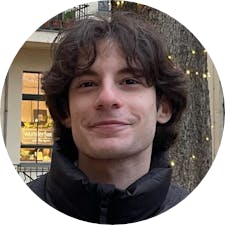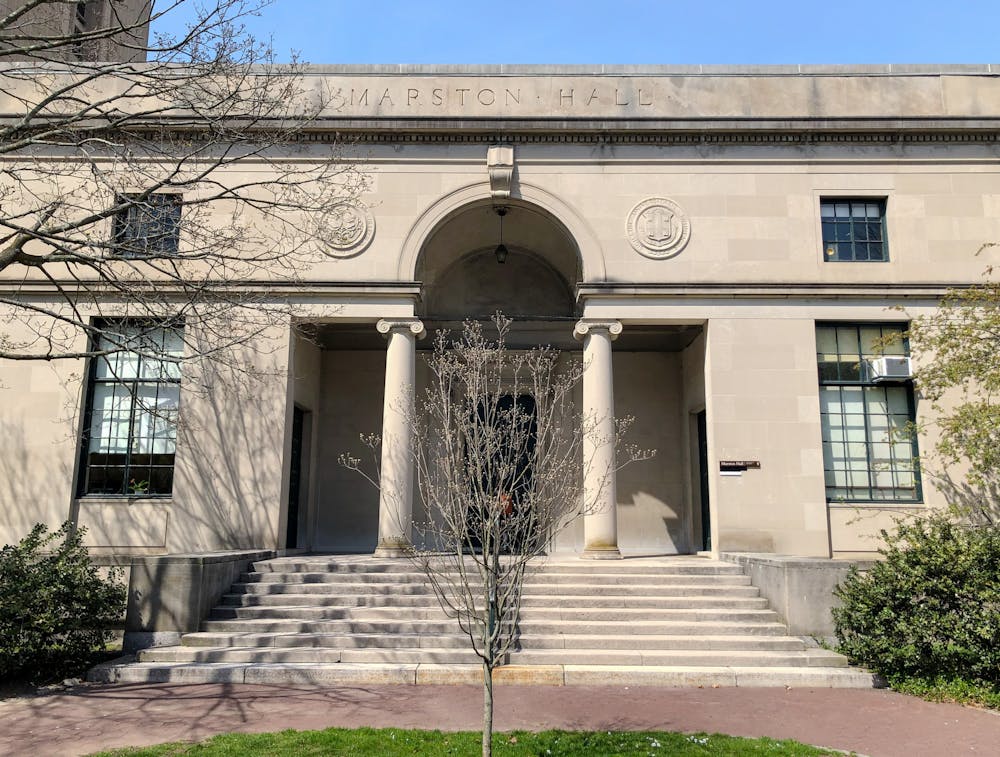When Paulina Duda, visiting assistant professor of Polish cinema and culture, arrived on campus this spring, she aimed to revive the University's formerly inactive Polish Program.
Polish language classes were reinstated in the Slavic Studies department last semester, after the program had been in “hibernation” over the past several years, according to Zoey Grant ’24, who is currently enrolled in PLSH 0200: “Introductory Polish,” taught by Duda.
Duda was supposed to arrive on campus during the summer 2021 semester, but because of visa issues and the COVID-19 pandemic, she was unable to begin her position until January. During Duda’s absence, Associate Professor of Slavic Studies Michal Oklot “graciously agreed to teach the introductory Polish language course.”
Oklot said that his new colleague is “the best possible candidate for this position in this country,” adding, “we are very lucky to have her.”
Interested students were reaching out to Duda even before her arrival. “She was more than happy to answer my questions and provide me advice,” Grant said. “She took in my thoughts, gave me the benefits of each language (offered in Slavic Studies) and left the decision up to me. So it really was helpful advice.”
Duda plans to develop the Polish Program through “three pillars”: increasing the Polish culture-based course offerings, hosting more Polish-based events on campus and developing fellowships for students studying the language.
There are currently 12 undergraduate students enrolled in Duda’s introductory class, a majority of whom she expects will continue with the language in the coming years. Other students in the program are taking her course PLSH 1050: “Polish Cinema: Uneven Histories, Uneasy Aesthetics” or pursuing independent studies related to Poland, she said.
Culture and language “go hand in hand,” Duda added. “Studying a language is not only about saying certain phrases in a correct way. It’s also about knowing the cultural context and references, all the nuances and cultural codes.”
In terms of events, while the program has several possible speakers lined up for the next year — including Geneviève Zubrzycki, a comparative historical and cultural sociologist focusing on Polish identity — Duda wants to ensure that the program addresses “more pressing issues that are more prevalent for the border Slavic community.”
“It is our role as university professors to increase awareness of the events and developments in politics, history and culture of the regions of our interest,” Oklot said. “Naturally, we have to respond to” the Russia-Ukraine war.
The program has already taken action to do so through “From the Maidan Revolution to Russia’s Invasion of Ukraine: Art, Activism and Humanitarian Crisis,” an event that was held in collaboration with the Watson Institute for International and Public Affairs in March.
Duda and Oklot are also working with the Kosciuszko Foundation, which is dedicated to promoting education and cultural exchanges between the United States and Poland, to create fellowships for students who want to study in Poland over the summer. These fellowships were supposed to start this year, Duda said, but plans have stalled because of the pandemic and current conflict in the region.
Duda has found that developing a Polish program at Brown is much easier than at other universities across the nation because of the helpful academic structures that already exist at the University.
Because of the Open Curriculum, “students take classes based on their own interest,” Duda said. “They ask me questions. They are interested in the culture and are always interested in asking me questions about Polish music.”
Additionally, Duda has inherited existing institutional knowledge about the Polish program’s former structure before it became largely inactive around 2016, she said. During the spring 2012 semester, in collaboration with the Kosciuszko Foundation, the University sponsored Maggie Harrison to join Brown’s faculty in a Polish language lecturer position, Duda said.
Along with academics, Harrison was heavily involved in fostering a Polish community on campus, she said. She did so by holding weekly conversation hours, screening Polish films and hosting cultural dinners at the nearby International House of Rhode Island.
“I had to do the marketing and promotion of the program, but I didn’t find it overwhelming,” Harrison said. “I think just having the caliber of students that I did and camaraderie with students was absolutely wonderful.”
Harrison left the University following a four-year appointment, after which Oklot took over teaching the Polish language classes for several semesters. When Oklot found he did not have the capacity to maintain this workload combined with his own classes, the program “flatlined,” Duda said.
With Duda’s arrival and current global attention focused on the Eastern European region, academic interest in Slavic studies has increased at the University.
“We are witnessing an important change, a historic change, which brings us back to the Polish program,” Duda said.
“It’s unfortunate that it takes a war to get most people to think about Slavic Studies, but it’s undeniable to say that Ukraine and, by extension, Poland’s reaction to Ukraine (has) brought more attention to this region of the world,” Grant said.
Grant, who is particularly interested in the cultural and historical significance of Polish literature, believes the University is “obligated to also reflect an interest in Polish studies.”
The war in Ukraine has emphasized, according to Grant, that studying the Slavic region beyond Russia is central to a cohesive Slavic Studies program. “The unique historical and cultural relationships between all (of) these countries and regions that occupy this designation” is important, she said.
“It’s important to teach Russian literature with the context of neighboring countries, especially Poland,” Oklot said. “It’s impossible to understand the evolution of Russian prosody without understanding the Polish prosody. It’s impossible to understand Russian romanticism without Poland.”
Because the Polish classes on campus are primarily language-focused, two undergraduate students at the University, Karolina Palac ’24 and Jessica Jacyno ’24, are planning to start an on-campus Polish Club which would focus more on the nation’s culture.
Palac and Jacyno are hoping to host cooking, movie and music nights through the club as a way to make Polish culture more accessible to students “who don’t have space in their schedules” for a class, Jacyno said.
Through the club, “you can make a sort of community at Brown with people who want that connection to Poland, have not experienced that connection with their culture before or who are just interested in Poland as a whole,” Palac added.
Harrison only has “best wishes” for the Polish program at the University. One thing Brown “does very well is just building cultural awareness, global awareness, … awareness of one’s community, sense of belonging (and) sense of responsibility,” she said. “It’s so important that these (programs) continue.”

Alex Nadirashvili was the managing editor of multimedia and social media for The Brown Daily Herald's 133rd Editorial Board. As a former University News editor, he covered faculty, higher education and student life, though his proudest legacy is The Brown Daily Herald TikTok account.





